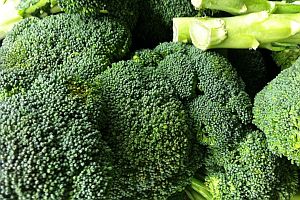Anyone who is looking for nutritional advice on how to manage their weight and/or stay fit has likely run across lots of advice on reducing their carbohydrate intake and increasing the amount of protein in their diet. Although most people don’t really need the amount of protein called for by many of these plans, it may be beneficial for those people who need to lose weight. This is because protein generally makes you feel full faster so it keeps you from eating as many calories overall. But what about carbohydrates? Is it really a good idea to eliminate them from your diet altogether as some diets propose? And are all carbohydrates really the same in terms of nutritional value and their impact on people’s health?
The Confusion Between “Good” and “Bad” Carbs
The first thing to understand is that the term “carbohydrate” encompasses a very broad range of foods with a variety of nutritional profiles. Some of them are actually very good for your health, while others contribute to a number of chronic health problems, including many tied to being overweight or obese.
At a very basic level, you can break carbohydrates into two categories, complex and simple. At the risk of oversimplifying things, complex carbs are the ones that health commentators tend to describe as “good,” while simple carbs are considered “bad.” Simple carbs are found in white breads, pasta and sweets. These foods break down quickly and cause spikes in your blood sugar, reduce mental clarity, and contribute to abdominal fat (which is associated with a number of serious health conditions).
Complex carbs, on the other hand, break down more slowly and provide you with energy, aid in digestion, boost metabolism, promote healthy sleep patterns, improve brain function, and reduce anxiety. Some “good” carb choices that are packed with important nutrients are:
- Sweet Potatoes
- Broccoli
- Legumes
- Whole Grains
- Spinach
- Asparagus
- Kale
Don’t Forget the Fruit
While fruits are often largely omitted from low-carb diets because of their natural sugar content, they have antioxidants and other important nutrients that you need for good health. There are some fruits that digest more slowly than others, potentially making them more compatible with low-carb diets. Citrus fruits like lemons and limes, oranges and grapefruit have natural anti-inflammatory properties and they help reduce your risk of cardiovascular disease. Berries are also a good pick, and apples and pears aid in digestive function.
Fiber: The “Other” Carbohydrate
Fiber is another type of “good” carbohydrate that aids in digestion and helps you feel full faster. On food labels, fiber is often listed separately from total carbs. The value of fiber in your diet makes them a “free carb” choice that isn’t counted against the carb allowance in many low-carb diets.
Keeping Track
When considering your carbohydrate intake, it’s also important to consider their broader nutritional contributions. Remember—it isn’t just the number of carbs you eat in a day that matters, but also the type and the source!

